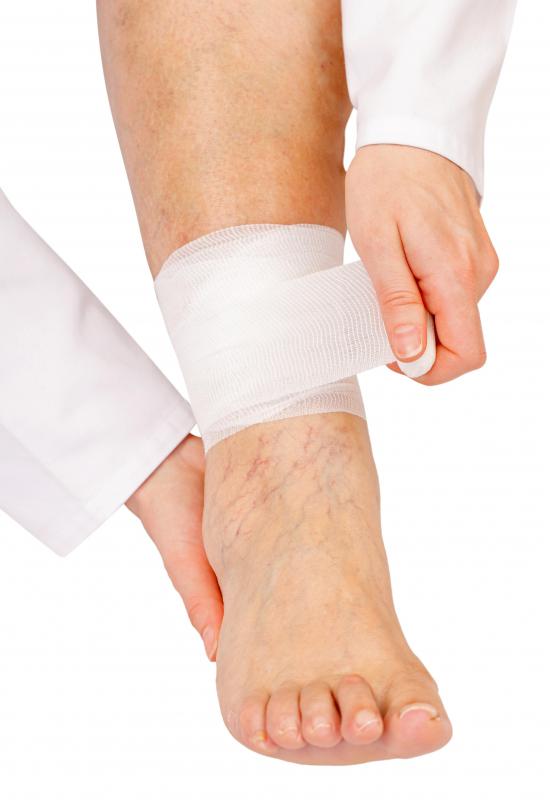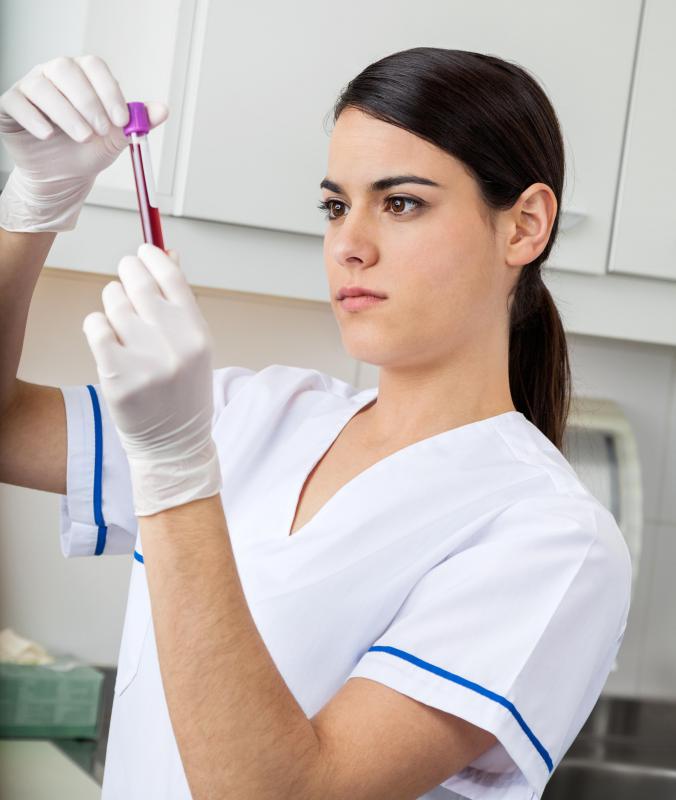At TheHealthBoard, we're committed to delivering accurate, trustworthy information. Our expert-authored content is rigorously fact-checked and sourced from credible authorities. Discover how we uphold the highest standards in providing you with reliable knowledge.
What Are the Common Causes of Blood and Pus?
Seeing blood and pus coming out of any part of the body can be an unsettling experience. It is, however, the body's natural reaction to fighting off a bacterial infection. When attempting to clear such a condition, blood and pus generally come from an infected wound, an infected sebaceous gland, or an internal infection.
Certain kinds of bacteria can do the body serious harm, damaging tissue and killing cells. The more these harmful bacteria reproduce and grow in number, the more harm they can do to the body. The immune system is body's natural mechanism for curing bacterial infections before they inflict too much harm. Antibodies mark harmful bacteria so that white blood cells, called macrophages, can begin consuming the infectious cells, and this process destroys the bacteria. The macrophages will continue consuming bacteria until the white blood cells themselves die.

When the body is fighting off a serious infection, the remains of the macrophages that died while consuming bacteria will accumulate in the infected area. This concentration of dead macrophage cells is what people see as pus. Blood also concentrates in these infected areas in order to deliver extra macrophages to help fight off the infection, therefore the two fluids can often be seen together.

An example of the most common causes of blood and pus accumulation is in acne. After the onset of puberty, sebaceous glands in the skin begin to produce an oily substance called sebum. A combination of sebum and dead skin cells can cause pores and hair follicles to clog. When bacteria becomes trapped below this clog, it can reproduce and create a small infection. As the macrophages fight this infection the blood and pus will build up below the clog, causing a pimple.

The skin is usually the body's first line of defense against harmful bacteria. When the skin is broken, it provides an opportunity for bacteria to get into the surrounding tissue. If blood or pus begin to seep through a wound, it often means it has become infected. An infected wound that goes untreated could become life-threatening if the infection moves to the bloodstream. When this happens, the wound is said to have become septic. For this reason, all cuts and abrasions should be well cared for, and any that appear infected should be seen and treated by a physician.

Blood and pus in other bodily discharges, such as urine or fecal matter, can indicate a serious problem with the digestive system. Such conditions could include infected ulcers, Crohn's disease, dysentery, or cancer. Individuals who notice blood and pus in their stool should seek immediate medical attention.
AS FEATURED ON:
AS FEATURED ON:


















Discussion Comments
When I see blood alongside pus, that scares me. My doctor told me that if bacteria enters the bloodstream, the infection can spread very easily. So a fairly simple infection can turn into something more serious. That's why it's not a good idea to ignore bloody pus.
I had this happen to me once when a cut became infected and started to drain with blood and pus. I had to take oral antibiotics for ten days to clear the infection.
@burcinc-- You're not supposed to pop pimples. You can cause more infections and serious scarring on your skin that way.
If you just leave it alone, the body will get the pus out on its own and doctors advise this. The reason that you're seeing blood along with the pus is not just because the body is fighting an infection. It's also because you're damaging small blood vessels in your skin as you squeeze a pimple.
If you don't flush out a popped pimple afterward and use antibiotic cream, you can cause a bigger infection. Even if nothing happens, it will leave a scar there. So stop popping them! Either leave them alone or use spot treatments to dry out pimples.
I see pus and blood come out of my pimples all the time. When I pop a pimple, some pus comes out but that is not all of it. There is more pus underneath and a second pop gets the rest out. But some blood also comes out in the process.
Post your comments